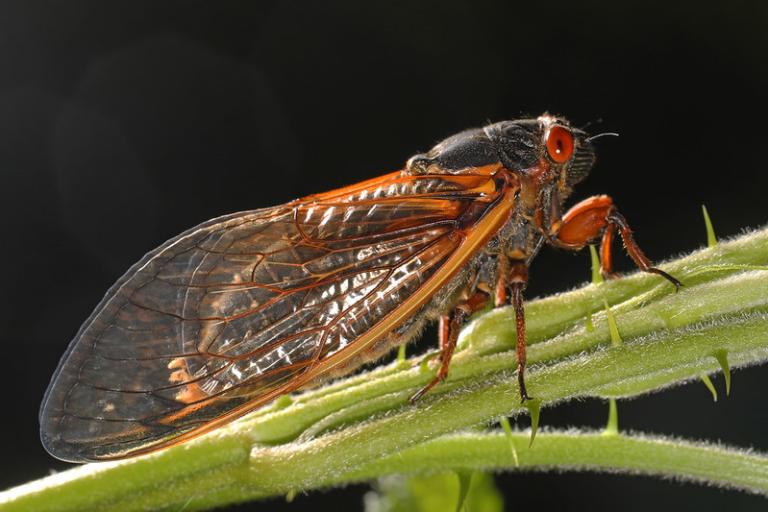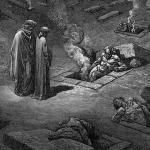
What we have to look forward to this year:
In late April, two major broods of cicadas–also known as locusts–will emerge from their multi-year development under ground at the same time. This is the first time this has happened since 1803, when Thomas Jefferson was pulling off the Louisiana Purchase! And it will mean more than a trillion locusts, buzzing louder than an airplane, blanketing the trees, and piling up in great heaps after they die.
Brood XIX, the Great Southern Brood with its 13-year cycle, and Brood XIII, the Northern Illinois Brood with its 17-year cycle, will emerge over a 16-state area in the South and Midwest. A trillion locusts, each of which is about an inch long, placed end-to-end would cover 15,782,828 miles, reaching to the moon and back 33 times.
The locusts will climb out of the ground, climb up a tree, molt (leaving behind their exo-skeletons), and start buzzing to attract a mate (which, with so many, will be extremely loud, possibly, according to the experts, louder than a jet engine). After their honeymoon, the females will lay their eggs in slits they cut in trees, and when the “nymphs” hatch, they will drop to the ground and burrow into the earth, starting the multi-year cycle all over again. Then, after about six weeks, they will all die.
An article on the subject from the New York Times entitled The World Hasn’t Seen Cicadas Like This Since 1803 quotes some experts:
In most cases, Dr. Shockley said, the cicadas, which live about a month, will die not far from where they had emerged. But since they’re “not great flyers and even worse landers,” cicadas often end up on sidewalks and city streets, where they can be squished by people or cars and “could conceivably make things slick.”
“In urban areas, there will be sufficient numbers to necessitate removal of their bodies,” he said. “But rather than throwing in the trash or cleaning up with street sweepers, people should consider them basically free fertilizer for the plants in their gardens and natural areas.”
According to the University of Illinois Urbana-Champaign, during a 1990 cicada emergence, “there were reports from people in Chicago having to use snow shovels to clear their sidewalks of the dead cicadas.”
Their deaths, according to the article, will result in “an unforgettable smell, described by Dr. Shockley as similar to rotting nuts, as their bodies decay.” I don’t think I know what rotting nuts smell like, but it can’t be good.
Such a “dual emergence” won’t happen again for 221 years. The cicadas play an important role in the ecosystem, aerating the soil and naturally pruning the trees. Biologist John R. Cooley says to not resist, just let it happen. “Don’t try to kill them. Don’t try to spray insecticide, all that kind of thing. That’s just going to end badly because there are more than you could possibly kill with insecticide, you’d end up killing everything.”
Entomologist Floyd Shockley says, “Don’t be scared of it, embrace it for the wondrous event that it is and embrace the fact that it’s very temporary,” he said. “It will be intense, but short-lived.”
I agree. This is indeed a wondrous example of what we might call God’s creativity in His creation. God devised these creatures and declared them good, so we shouldn’t complain.
Plagues of locusts in the Bible, of course, were also manifestations of God’s judgment. Those locusts were not cicadas but what we call grasshoppers, which devoured crops and ravaged the land. Cicada adults don’t eat much, just drinking a little sap. So at most we might see this dual emergence as a sign of some sort. If not a sign of impending apocalypse, perhaps a sign that objective reality exists, that contrary to what people today assume, reality is not our personal or cultural “construction” but something outside ourselves, something we would never dream of on our own.
Photo: Seventeen-year Cicada by Judy Gallagher via Flickr, https://creativecommons.org/licenses/by/2.0/














